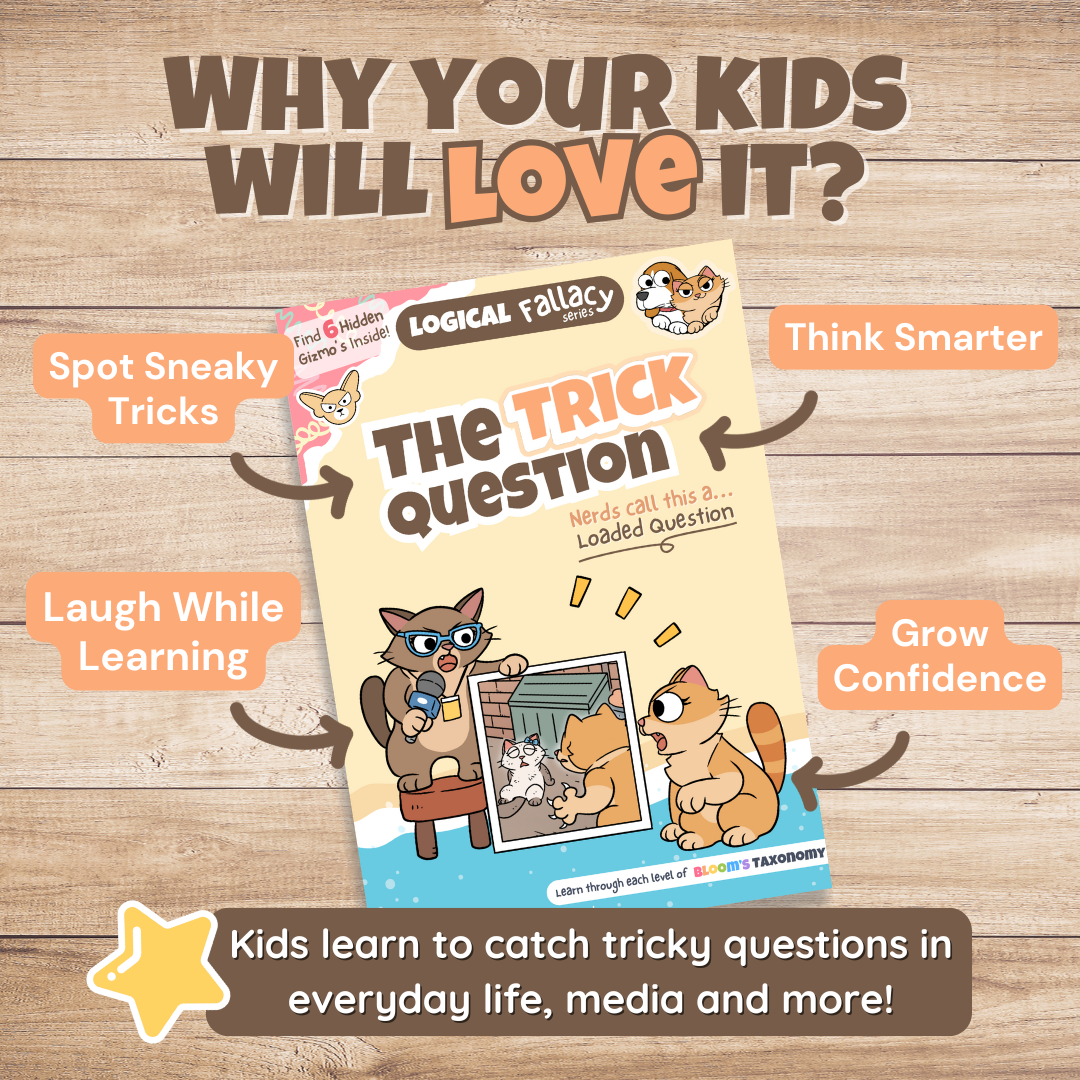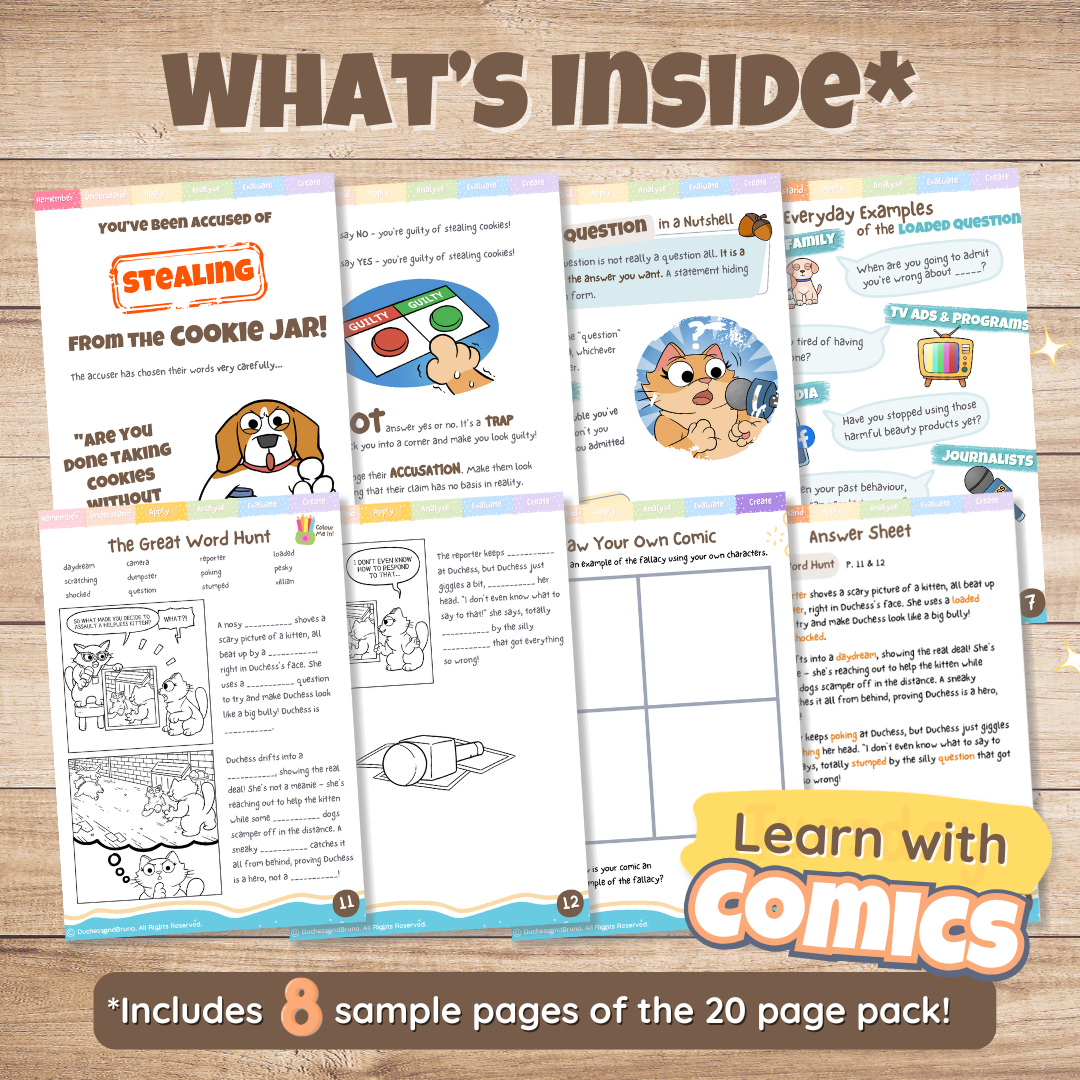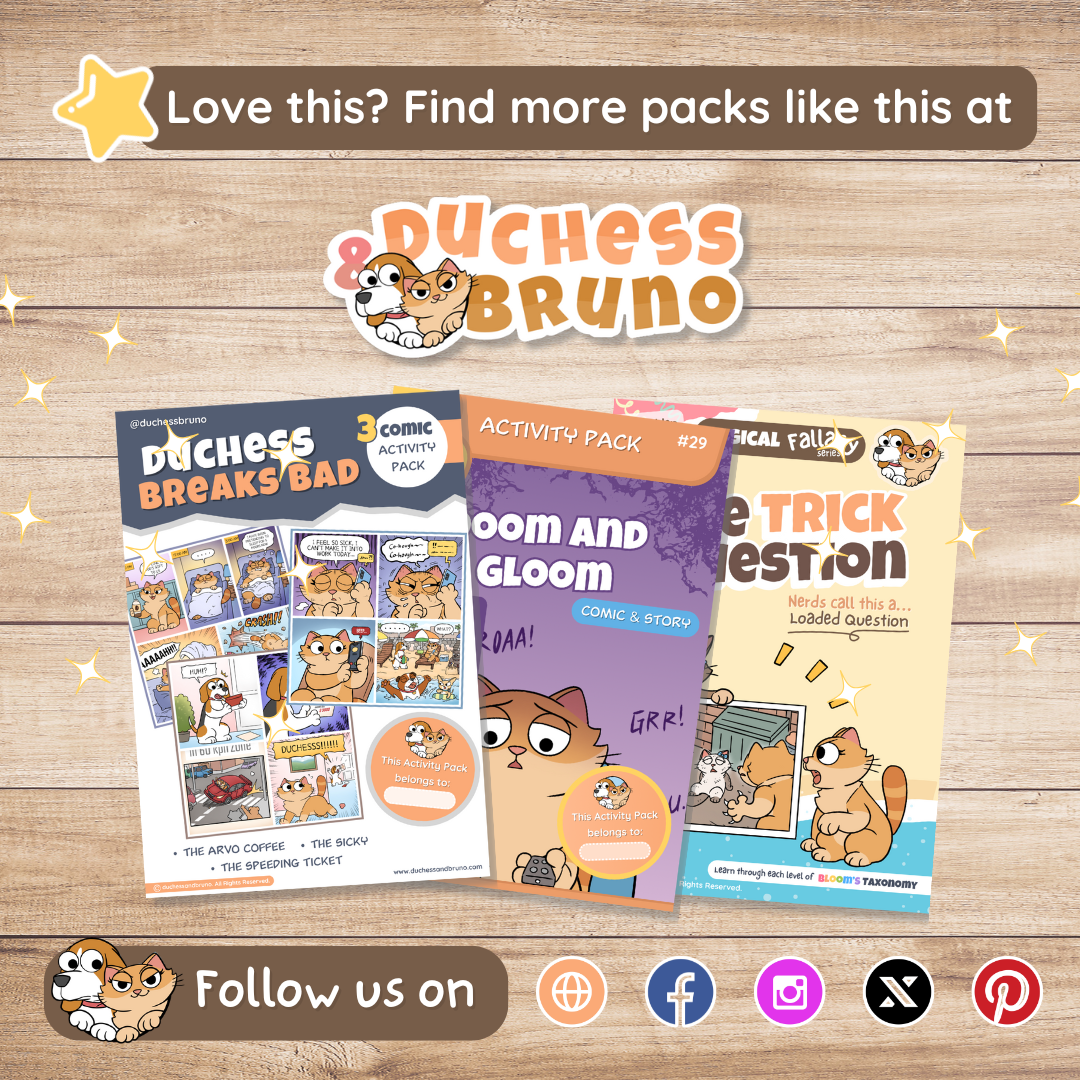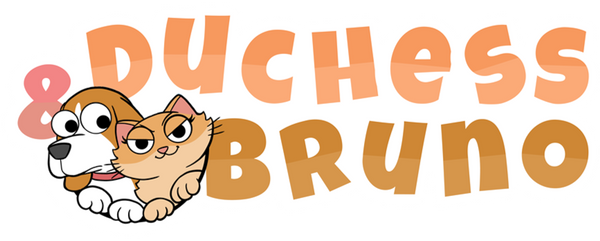Duchess and Bruno
The Loaded Question Sample Pack
The Loaded Question Sample Pack
Couldn't load pickup availability
Unlock critical thinking with Duchess and Bruno! Our activity packs inspire kids to question, explore tough concepts, and make smart choices with confidence.
This free 8-page sample of our 20-page Loaded Question Fallacy Pack is your glimpse into how we make critical thinking fun.
What’s Inside the Sample?
-
2 Pages of Historical Narrative: A taste of the full pack’s engaging story.
-
Clear Definition: Learn what a loaded question fallacy is, made simple.
-
Everyday Examples: Spot the fallacy in real-life scenarios.
-
Great Word Hunt Activity: Fill in the blanks to sharpen skills.
-
Draw Your Own Comic: Create a story to cement learning.
- Answer Sheet: Check answers for the Word Hunt.
Why Kids Love It:
This pack blends laughs and learning, turning kids into fallacy detectives who think critically and aren’t easily fooled. Perfect for middle schoolers and above, families, or anyone who wants to learn how to spot fallacies in our every day lives!
How to Use It:
Download the digital file to print or display on your device. For lasting fun, print and laminate the activities, posters, and guides—ideal for classrooms, homeschooling, tutoring, or family nights. Designed for ages 11+ but great for all curious minds!
Love This Sample?
Grab the full pack or more at our TPT store: Duchess and Bruno.
Your Feedback Matters: After using this with your learners, please leave a review on TPT. Your input helps us improve! If there’s an issue, contact us—we’ll fix it and send a fresh copy.
Important Notes:
- We’re here to help! Reach out with any issues or suggestions, and we’ll send an updated pack to ensure the best experience.
- Personal Use Only: These materials are for your use only — not for sharing, selling, or commercial purposes.
Join Duchess and Bruno to spark curiosity and critical thinking today!
Curriculum Alignment:
The following outlines how the Activity Pack meets the standards or outcomes of the Australian National Curriculum, UK National Curriculum, and US Common Core State Standards. Although each of these curricula may not always explicitly mention "critical thinking" or "logical fallacies", they do encourage critical thinking (a core aspect of logical fallacies) in various ways from Grades 6 and above.
Here are the key ways in which critical thinking is emphasised in these national curricula:
Australia (Australian National Curriculum):
In the Australian National Curriculum, critical thinking is encouraged through the development of general capabilities. Some key aspects include:
Critical and Creative Thinking: This capability is explicitly mentioned and emphasizes skills such as problem-solving, analysis, and evaluation. Students are expected to think critically and creatively across various subject areas.
Research Skills: Students are encouraged to conduct research, analyze information, and use evidence to support their arguments, which involves critical thinking.
Inquiry-Based Learning: The curriculum promotes inquiry-based learning, where students are expected to ask questions, gather data, and draw conclusions, fostering critical thinking skills.
United Kingdom (UK National Curriculum):
In the UK National Curriculum, critical thinking is promoted through various subjects and general expectations:
English: Students are expected to analyze texts critically, evaluate evidence, and develop persuasive arguments.
Mathematics: Problem-solving and reasoning are central to mathematics. Students are encouraged to think critically and justify their solutions.
Science: The scientific method emphasizes critical thinking, analysis of evidence, and drawing conclusions.
History and Geography: Analyzing historical and geographical data and considering multiple perspectives require critical thinking.
Citizenship: Students explore political and social issues, requiring them to think critically about their rights, responsibilities, and societal challenges.
Information Literacy: In an age of information overload, students are expected to critically evaluate information sources for reliability and bias.
United States (Common Core State Standards):
In the US Common Core State Standards, critical thinking is integrated into subject-specific standards and the broader goals for students:
English Language Arts (ELA): Students are expected to analyze texts, evaluate arguments, and develop persuasive writing, requiring critical thinking.
Mathematics: The Standards for Mathematical Practice emphasize problem-solving, reasoning, and critiquing the reasoning of others.
Science: The Next Generation Science Standards (NGSS), adopted by many states, promote scientific inquiry, evidence-based thinking, and argumentation.
Research Skills: Students are encouraged to conduct research, evaluate information, and use evidence to support their claims.
Social Studies: Analyzing historical events, evaluating primary and secondary sources, and considering various perspectives require critical thinking.
These curricula may not explicitly state "critical thinking" as a standalone outcome, but they are designed to foster critical thinking skills within various subjects and educational activities. Educators play a significant role in promoting and assessing critical thinking within their teaching based on their region's curriculum expectations.
Share










